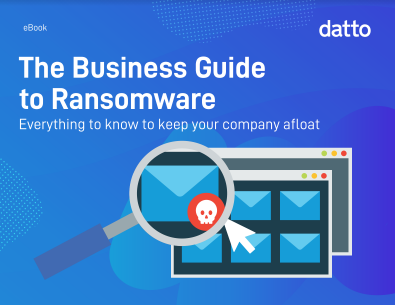US fuel pipeline hackers reveal their motive
Colonial Pipeline was forced to suspend 5,500 miles of pipeline between Texas and New York after hackers breached its networks


Sign up today and you will receive a free copy of our Future Focus 2025 report - the leading guidance on AI, cybersecurity and other IT challenges as per 700+ senior executives
You are now subscribed
Your newsletter sign-up was successful
The hackers behind the ransomware attack on the largest pipeline operator in the US, Colonial Pipeline, have revealed the motive behind the data theft.
According to a statement released by DarkSide, the hacking group responsible for the attack, the cyber criminals were not planning to create issues for the general public. The hackers went on to maintain that their goals were purely financial and that the hacking group was "apolitical" and not state-backed.
“Our goal is to make money, and not creating [sic] problems for society,” hackers stated in a post on their website, adding that there is no "need to tie” them with any particular government. The hacking group had been suspected to be supported by a Russian or other post-Soviet state due to their history of targeting US organisations.
DarkSide pledged to carry out checks on fellow cyber criminals "to avoid consequences in the future” similar to the one’s created by their attack on Colonial Pipeline, which took place late last week.
The pipeline operator has released a new statement confirming that its services will remain inactive for another few days and that it will attempt to restore them in a phased approach:
“This plan is based on a number of factors with safety and compliance driving our operational decisions, and the goal of substantially restoring operational service by the end of the week,” the company announced.
Colonial Pipeline's website is currently inaccessible due to a 502 Bad Gateway error.
Sign up today and you will receive a free copy of our Future Focus 2025 report - the leading guidance on AI, cybersecurity and other IT challenges as per 700+ senior executives
10/05/2021: Ransomware leads to shutdown of US fuel pipeline
A ransomware attack has lead to the shutdown of one of the main fuel pipelines in the US after hackers targeted the networks of Colonial Pipeline.
The company, which manages 45% of the US east coast’s fuel supplies, was forced to suspend 5,500 miles of pipeline between Texas and New York after falling victim to a double-extortion scheme carried out by the DarkSide ransomware group.
DarkSide, which is believed to be based in a post-Soviet country, is known for targeting US organisations. The group recently made headlines for selling information about their ransomware attacks to stock traders, and months earlier, it attempted to donate around $20,000 in stolen Bitcoin to charity before the donations were refused.
Last Thursday, DarkSide managed to obtain almost 100GB of data from Colonial Pipeline’s network, before locking computers with ransomware and demanding payment, two people involved in the investigation told Bloomberg. This forced the fuel operator to shut down operations on Friday, with the incident being confirmed by the company on Saturday.
“On May 7, Colonial Pipeline Company learned it was the victim of a cyber security attack and has since determined that the incident involved ransomware. Quickly after learning of the attack, Colonial proactively took certain systems offline to contain the threat. These actions temporarily halted all pipeline operations and affected some of our IT systems, which we are actively in the process of restoring,” Colonial Pipeline stated.
“Leading, third-party cybersecurity experts were also immediately engaged after discovering the issue and launched an investigation into the nature and scope of this incident. We have remained in contact with law enforcement and other federal agencies, including the Department of Energy who is leading the Federal Government response,” it added.
The Biden administration announced an emergency loosening of regulations for the transport of petroleum products on highways, with the Department of Transportation issuing a temporary waiver to enable oil products to be shipped in tankers up to New York.
However, government cyber security expert at Nominet, Steve Forbes, warned that “the attack on Colonial is likely to have a ripple effect across the globe”.
RELATED RESOURCE

The business guide to ransomware
Everything you need to know to keep your company afloat
“While the demand for oil across the US east coast is evident, the fact that this is already impacting the financial markets and traders, demonstrates that it really is the tip of the iceberg. That’s not to mention the fact that the severity of this breach will worsen if confidential information is leaked, as the group has threatened. Being able to take systems offline and begin a process of restoration is undeniably important, but there is an additional threat if this data is exposed. It underlines the importance of international collaboration to bring down these highly coordinated groups early in their development if we want to protect our critical services,” he told IT Pro.
“As we watch the domino effect of this cyber attack, it is very apparent that impact is not limited to systems and software - victims will come in all shapes and sizes, from industries to individuals,” added Forbes.
Earlier this year, a water treatment facility in Florida was targeted in a failed attempt to poison the water supply after hackers attempted infiltrated a water treatment facility and ramped up the Sodium Hydroxide (NaOH) levels. The computer systems of a water treatment facility, located in the city of Oldsmar, Florida, were remotely breached twice on 5 February.
Having only graduated from City University in 2019, Sabina has already demonstrated her abilities as a keen writer and effective journalist. Currently a content writer for Drapers, Sabina spent a number of years writing for ITPro, specialising in networking and telecommunications, as well as charting the efforts of technology companies to improve their inclusion and diversity strategies, a topic close to her heart.
Sabina has also held a number of editorial roles at Harper's Bazaar, Cube Collective, and HighClouds.
-
 Ransomware gangs are sharing virtual machines to wage cyber attacks on the cheap – but it could be their undoing
Ransomware gangs are sharing virtual machines to wage cyber attacks on the cheap – but it could be their undoingNews Thousands of attacker servers all had the same autogenerated Windows hostnames, according to Sophos
-
 Google issues warning over ShinyHunters-branded vishing campaigns
Google issues warning over ShinyHunters-branded vishing campaignsNews Related groups are stealing data through voice phishing and fake credential harvesting websites
-
 The FBI has seized the RAMP hacking forum, but will the takedown stick? History tells us otherwise
The FBI has seized the RAMP hacking forum, but will the takedown stick? History tells us otherwiseNews Billing itself as the “only place ransomware allowed", RAMP catered mainly for Russian-speaking cyber criminals
-
 Everything we know so far about the Nike data breach
Everything we know so far about the Nike data breachNews Hackers behind the WorldLeaks ransomware group claim to have accessed sensitive corporate data
-
 There’s a dangerous new ransomware variant on the block – and cyber experts warn it’s flying under the radar
There’s a dangerous new ransomware variant on the block – and cyber experts warn it’s flying under the radarNews The new DeadLock ransomware family is taking off in the wild, researchers warn
-
 Hacker offering US engineering firm data online after alleged breach
Hacker offering US engineering firm data online after alleged breachNews Data relating to Tampa Electric Company, Duke Energy Florida, and American Electric Power was allegedly stolen
-
 Cybersecurity experts face 20 years in prison following ransomware campaign
Cybersecurity experts face 20 years in prison following ransomware campaignTwo men used their tech expertise to carry out ALPHV BlackCat ransomware attacks
-
 15-year-old revealed as key player in Scattered LAPSUS$ Hunters
15-year-old revealed as key player in Scattered LAPSUS$ HuntersNews 'Rey' says he's trying to leave Scattered LAPSUS$ Hunters and is prepared to cooperate with law enforcement


